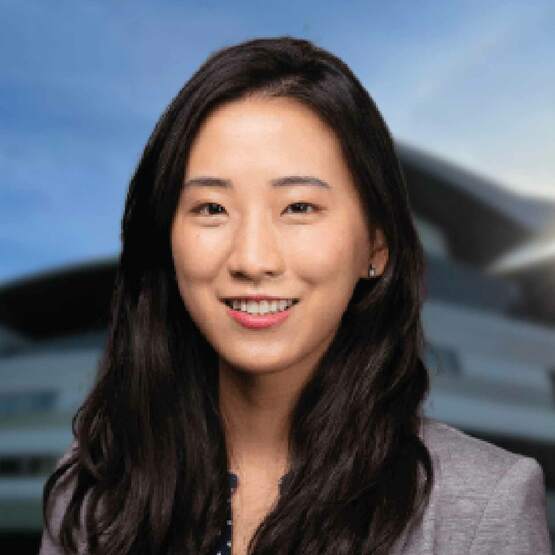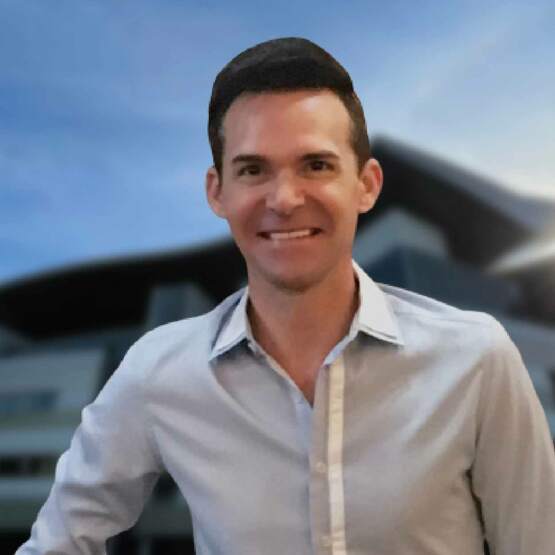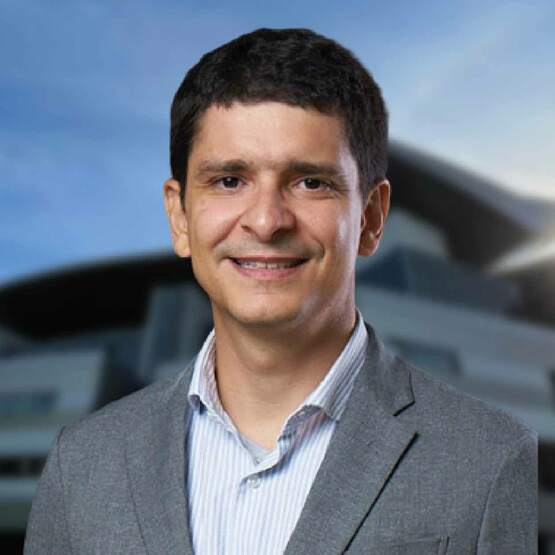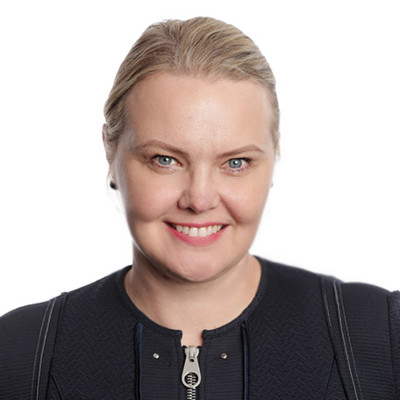Assistant Professor in Organizational Behavior

Yi-Ren Wang is an Assistant Professor of Organisational Behaviour at the Asia School of Business. Her research interests include precarious work, workplace inequality, behavioural poverty trap, socioeconomic mobility, work motivation, fairness, work-family dynamics, employee well-being, and workplace trauma. Her research aims to identify ways to reduce social disparities and promote upward mobility, particularly for workers in underprivileged conditions.
Prof Yi-Ren’s ongoing projects aim to explain the motivational and behavioural challenges faced by underprivileged workers at work, highlight the importance of organisational justice for promoting a long-term perspective and career investment for workers in precarity, and theorise the transmission of occupational strain across life boundaries and between individuals.
Her work has been published in the Journal of Organizational Behavior, the Journal of Vocational Behavior, and the Academy of Management Proceedings, among others.
In 2022, she was selected by the Society for Industrial and Organizational Psychology to receive the 2022 S. Rains Wallace Dissertation Award for the best doctoral dissertation research in industrial-organisation psychology.
Prof Yi-Ren received her PhD in Management from the University of Alabama. She obtained her master’s degree in Industrial and Organisational Psychology from the University at Albany – State University of New York and her bachelor’s degree in Psychology from National Taiwan University.
Topic: Closing the Intention-Behavior Gap for Climate Actions: Insights from the Psychological Science
Why is it that many people who say they value sustainability do not actually act pro-environmentally? Why do we say one thing but act another? What differentiates the businesses that view pro-environmental responsibility as a trade-off from those that view it as a win-win solution and unlock new business opportunities? What differs between the goals we set in the distant future and the actions we take on a daily basis? Research in Behavioral Science provides us with critical insights in explaining the roles of our perception of time, our judgment about risk, our emotions, and the barriers that affect the choices we make in a climate crisis.
Through the lens of Psychology, in this masterclass, we will also discuss real-world, evidence-based interventions that help business leaders build a sustainable corporate culture that leads to effective behavioral change.
Associate Professor of Operations and Supply Chain Management

Dr Shardul Phadnis is an Associate Professor of Operations and Supply Chain Management at the Asia School of Business. He previously served as the Associate Professor and Director of Research at MIT SCALE Network’s Malaysia Institute for Supply Chain Innovation.
His research explores the intersection of supply chains and strategic management: how organisations create value by orchestrating supply chain operations and how strategy processes influence the adaptability of supply chain structures and processes.
Dr Shardul’s book Strategic Planning for Dynamic Supply Chains (2022) describes first-hand accounts of applications of scenario planning in three in-depth cases involving strategic supply chain planning in businesses and long-range planning in governmental transportation planning agencies. His work has also been published in various journals, including Strategic Management Journal, MIT Sloan Management Review, and Technological Forecasting and Social Change.
His current research examines three lines of inquiry: supply chain resilience through vigilance enabled by scenario planning, value creation by managing operational uncertainty in supply chains, and analysis of end-to-end supply chain configurations.
Dr Shardul received the Giarratani Rising Star Award for 2015 from the Industry Studies Association for his research in apparel supply chains. He holds a PhD in Engineering Systems from the Massachusetts Institute of Technology, USA.
Topic: Supply Chain Adaptability
Supply chains have gained tremendous attention from the public and policymakers since the Covid-19 pandemic disrupted them globally. This attention has intensified over time as various events—such as the disruption of food and energy supplies and skyrocketing of prices after the Russian invasion of Ukraine, the resulting inflation, regulatory measures in the West to repatriate critical semiconductor production, the subsequent multi-billion-dollar investments by semiconductor firms, etc.—have prevented any resumption of normality. Joining these surprise developments, the slow and steady shifts—such as global climate change, advances in artificial intelligence, and many more—portend to usher in a world that may look nothing like what we experienced before the Covid-19 pandemic. Supply chains would be upended as they adapt to these structural shifts. What should businesses, governments, charities, etc., do to prepare for these monumental changes? How should they decide upon the right courses of action?
This masterclass elaborates on these towering challenges posed by the world changing dramatically and the strategic decision-making processes to prepare for them.
Distinguished Visiting Professor at Asia School of Business, Emeritus Professor at the NUS Business School, National University of Singapore

Wong Poh Kam is a Distinguished Visiting Professor at Asia School of Business and Emeritus Professor at the NUS Business School, National University of Singapore. He has published extensively in numerous international refereed journals on innovation policy, industrial and competitiveness policy, and technology entrepreneurship.
He has also consulted widely on innovation and entrepreneurship ecosystem development policies for various international agencies, including the World Bank and Asian Development Bank, and government agencies in Singapore, including the Ministry of Trade and Industry, Economic Development Board and the Ministry of Law, as well as private corporations in Asia. In addition, he was also the Director of the NUS Entrepreneurship Centre from August 2001 to July 2019.
Prof Wong was a Fulbright Visiting Scholar at the University of California, Berkeley, a visiting scholar at Stanford University, a senior visiting scholar at Oxford University, and a Pacific Leadership Fellow at the University of California San Diego. Before joining academia, he was an entrepreneur and has been an active angel investor in more than a dozen tech startups in Singapore, Silicon Valley and China.
He received a Public Administration Medal (Silver) from the Singapore Government in 2013 and the “Entrepreneur for the World” Award (Educator Category) from the World Entrepreneurship Forum in 2015.
He obtained his PhD (Regional Planning), BSc and MSc from the Massachusetts Institute of Technology, USA.
Topic: Purpose-Driven Business Model Innovation
Conventional business model design tools such as Business Model Canvas (BMC) and Value Proposition Canvas (VPC) cover only financial viability and value creation for users who are paying customers. Sustainability and other social impacts are not explicitly integrated into the design tools, but as additional factors to be considered after the main business model has already been designed.
In this masterclass, I share a set of enhanced business modelling tools that explicitly incorporate social impact purposes in addition to the profit purpose, and illustrate their analytical power with case studies of how actual businesses achieved their social impact purpose while maintaining financial viability. The tools are not only relevant for social entrepreneurs launching new social-impact driven start-ups, but also for established businesses seeking to transform their existing business models to incorporate social impact purposes. Rather than incrementally adjusting some existing business processes and practices in a business model that is designed to be purely profit-driven to ameliorate their negative social impact, which in the longer run is sub-optimal, our purpose-driven business model design methodology encourages a holistic approach to business model innovation that achieves double bottom-lines, by integrating both social impact and financial viability purposes.
Associate Dean, Executive Education and Professor of Practice

Dr. Abeln received his B.A. in History from The University of Pennsylvania, where he graduated Phi Beta Kappa and magna cum laude. He received both a Ph.D. in Management and M.Phil. in International Relations from the University of Cambridge, where he was a Rotary Foundation Scholar. His doctorate work on international labour economics was under the supervision of Professor W.A. Brown, Chairman of the Cambridge University Economics Department.
He has an extensive international academic background having served as President, Dean and Associate Dean including leading institutions in USA, UK, Australia and Asia, as well as serving as a member of faculty. He has developed new academic programs and curriculum for undergraduate, postgraduate masters and doctoral programs, while also promoting liberal arts, STEM and business education and interdisciplinary learning. Dr. Abeln was instrumental in negotiating 300+ partnership agreements between university and industry, government and other academic institutions to promote collaboration.
Topic: Leadership & Trust
To combat global climate change and advance the sustainability agenda, we need collaborative leadership and action from the private and public sectors—governments and policies alone cannot solve this crisis.
Today, trust in leaders varies significantly across countries; low trust in many governments and erosion of confidence in leaders of public sectors worldwide is one of the most significant barriers against effective leadership and sustainability solutions.
This scepticism of government and dwindling public trust is pervasive across the globe—from the US to Europe to Asia. In fact, in both democratic and more autocratic governments, few citizens have complete trust in their leaders to protect their economic and social interests.
To find global solutions, we must first reestablish trust in government; achieving this requires bold leadership that is clear, transparent, and sincere in their values and the values of their organization. It is one thing to claim to fight climate change and another to actually execute change.
What is needed are leaders who walk the talk—ones who lead by example, tell the truth about the consequences and impact of climate change, and commit to responsible approaches because they understand the broader impact of their decisions on society and the environment.
This session will showcase past leaders who have successfully paved a brighter, more sustainable way forward, and those who ultimately failed to affect positive change despite being recognized as competent leaders.
Assistant Professor of Business and Society Research Affiliate at MIT

Renato Lima de Oliveira is an Assistant Professor of Business and Society at the Asia School of Business. His main research interest lies in the political economy of development and state-business relations, particularly in energy, industrial and innovation policies, government accountability, and non-market strategies.
His PhD dissertation analysed the development of the oil industry and the local supply chain in Brazil, Malaysia and Mexico, such as the policies used for industrial upgrading and the promotion of innovation. His research has appeared in journals like Comparative Political Studies and edited collections published by Oxford University Press and Routledge, among others.
Outside of academia, Prof Renato has worked as an energy, environment and political consultant, including assignments for the Ministry of Energy of Mexico and the World Bank. He has also worked before as a business reporter in Brazil with experience in newspaper, TV and radio.
Prof Renato received his PhD in Political Science from MIT. He obtained an MA in Latin American Studies from the University of Illinois at Urbana-Champaign (UIUC) and a bachelor’s degree in communication from the Federal University of Pernambuco (UFPE). He is also a research affiliate at the MIT Industrial Performance Center (IPC) and a fellow at the Institute for Democracy and Economic Affairs (IDEAS-Malaysia).
Topic: The Politics of Climate Change and How to Get it Right
A growing number of countries and companies are committing to reach net zero emissions by 2050, a target required to limit global temperature rise to 1.5 °C. For this goal to be reached, the world will need to invest in decarbonizing our energy systems, with investments in technologies and solutions which include different sources of renewable energy and energy carriers (like hydrogen), electric vehicles, and carbon capture and storage. Some clean energy technology solutions are already available and are cost-effective today, while others will need to be developed. However, the key challenge to build a more sustainable world is not technical, but political: to build and sustain coalitions that will support a radical transformation of the economy from fossil fuel-based to low-carbon development.
Drawing from the international experience on the politics of climate change and survey data from Malaysia, this masterclass will address the political challenges to build a more sustainable economy, identify the winners and losers of a net zero world, and address the policy mechanisms that can increase the support for ambitious climate goals such as net zero emissions.
Professor at NUS Business School, National University of Singapore

Professor Mak Yuen Teen teaches at the NUS Business School, National University of Singapore. Professor Mak has served on three of the four corporate governance committees set up by the Singapore authorities to develop and revise the code of corporate governance, including the first committee in 2000 and the most recent committee under the Monetary Authority of Singapore (MAS) which released the 2018 Singapore Code. He currently serves on the Corporate Governance Advisory Committee under MAS aimed at continually raising corporate governance standards for listed companies in Singapore, and is a member of the Remuneration Sub-Committee.
He has produced a guide for Nominating Committees with KPMG, and served on the advisory panel of the Singapore Institute of Directors which produced the Nominating Committee Guidebook. Between 2000 to 2005, he served on the Governing Council of the Singapore Institute of Directors.
Each year, Professor Mak edits a collection of Asia-Pacific and global case studies which are published by CPA Australia and so far, ten volumes, a special financial services edition, and several volumes translated into Chinese and Vietnamese have been produced. In all, he has written or edited well over 200 case studies related to corporate governance.
Professor Mak has also produced numerous reports on corporate governance, often commissioned by the authorities or consulting firms. He developed the first corporate governance rating for Singapore companies called the Governance and Transparency Index and the first Singapore governance rating for REITs and business trusts. He was also the Singapore expert involved in the development of the ASEAN CG Scorecard.
In 2018, he produced the first-ever comprehensive report on remuneration practices of Singapore companies which covered more than 600 companies listed on the Singapore Exchange. He has extensive experience conducting training for directors, regulators and other professionals, including in the Mandatory Accreditation Program (MAP) and Financial Institutions Directors’ Education (FIDE) program, and programs relating to nomination and remuneration matters.
Professor Mak is also a regular commentator on corporate governance issues in the Singapore and international media, and regularly posts articles and commentaries on his website Governance for Stakeholders.
Topic: Governance & Sustainability Structures
Sustainability reporting frameworks and standards state that companies should disclose how they govern and manage sustainability-related risks and opportunities. However, they do not prescribe specific governance and management structures as there is no ‘one size fits all’ structure.
In this talk, Professor Mak will share sustainability governance and management structures and practices that companies are adopting, and key issues that companies should consider in making decisions on the structure and practices to adopt. He will also discuss other key issues such as sustainability assurance, ESG ratings and greenwashing.
Principal Lead Data Scientist | Teradata

Dr. Tatiana Bokareva is an accomplished Principal Lead Data Scientist who oversees Teradata's international operations. Her extensive experience in developing predictive statistical models and utilizing cutting-edge machine-learning techniques has established her as a prominent figure in the industry. In her current role, she expertly manages a team of technology professionals and thought leaders in data science.
With the rapid evolution of the analytics landscape, Dr. Bokareva is dedicated to helping businesses unlock the true potential of Machine Learning and Artificial Intelligence. Her areas of interest include advanced analytics and data science techniques, such as predictive modeling, Neural Networks (also known as Deep Learning), machine learning classifiers, natural language processing (NLP), text mining, clustering, graph theory, and other innovative solutions which she believes will be vital to solving complex problems of the future.
Dr. Bokareva's vast experience in Data Science and Big Data consulting has allowed her to assist clients in developing a vision, roadmap, and architecture for analytical projects. She has worked with clients from diverse industries, including federal and state government agencies, financial institutions, telcos, and retail enterprises.
Her in-depth industry experience results from over 20 years of in-depth industry experience, working for Fortune 500 companies and hands-on data science expertise.
Dr. Bokareva earned her Ph.D. in Computer Science from the prestigious University of New South Wales (UNSW Sydney), Australia. She is a highly sought-after speaker and thought leader, and her insights and expertise have been featured in various conferences and publications.